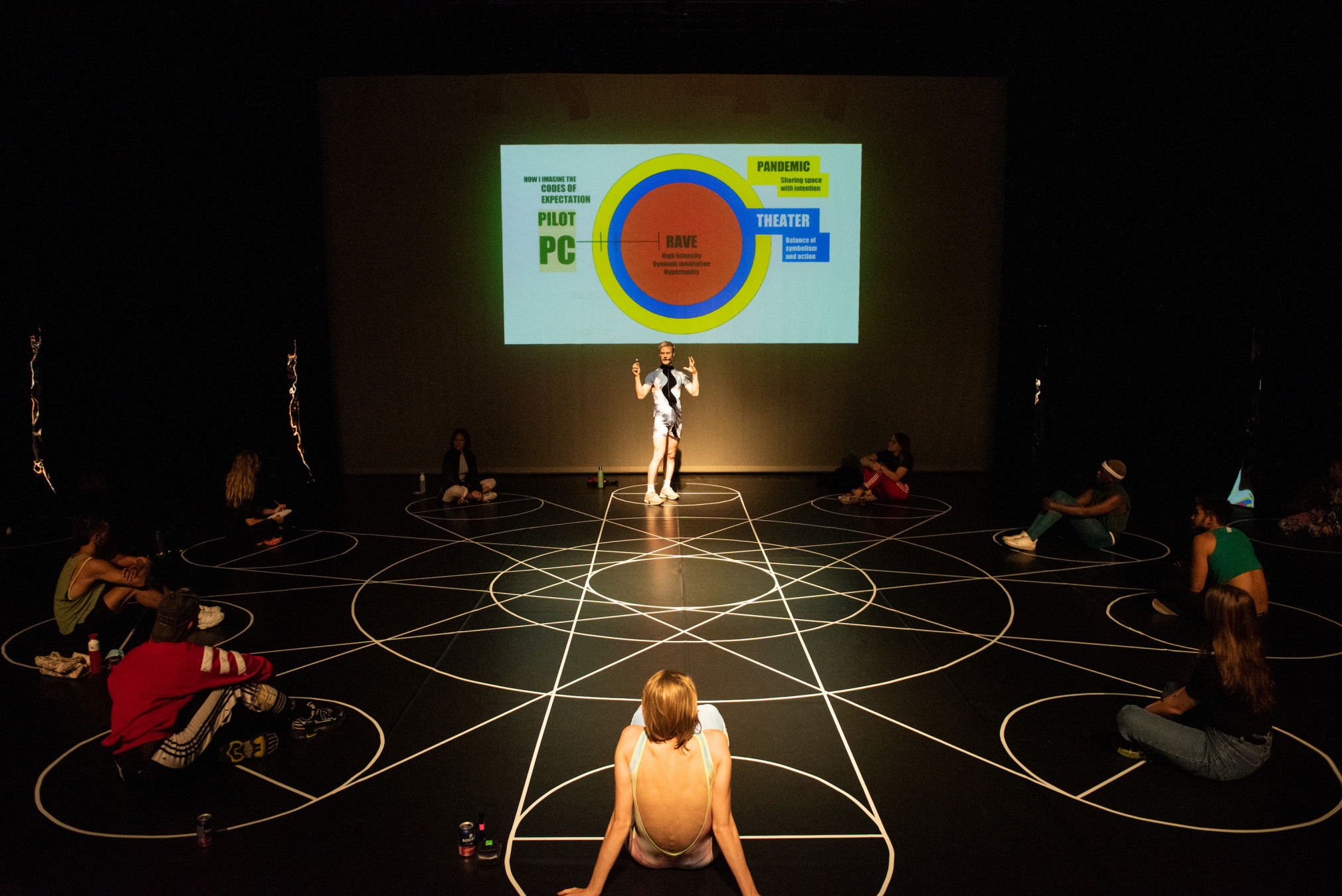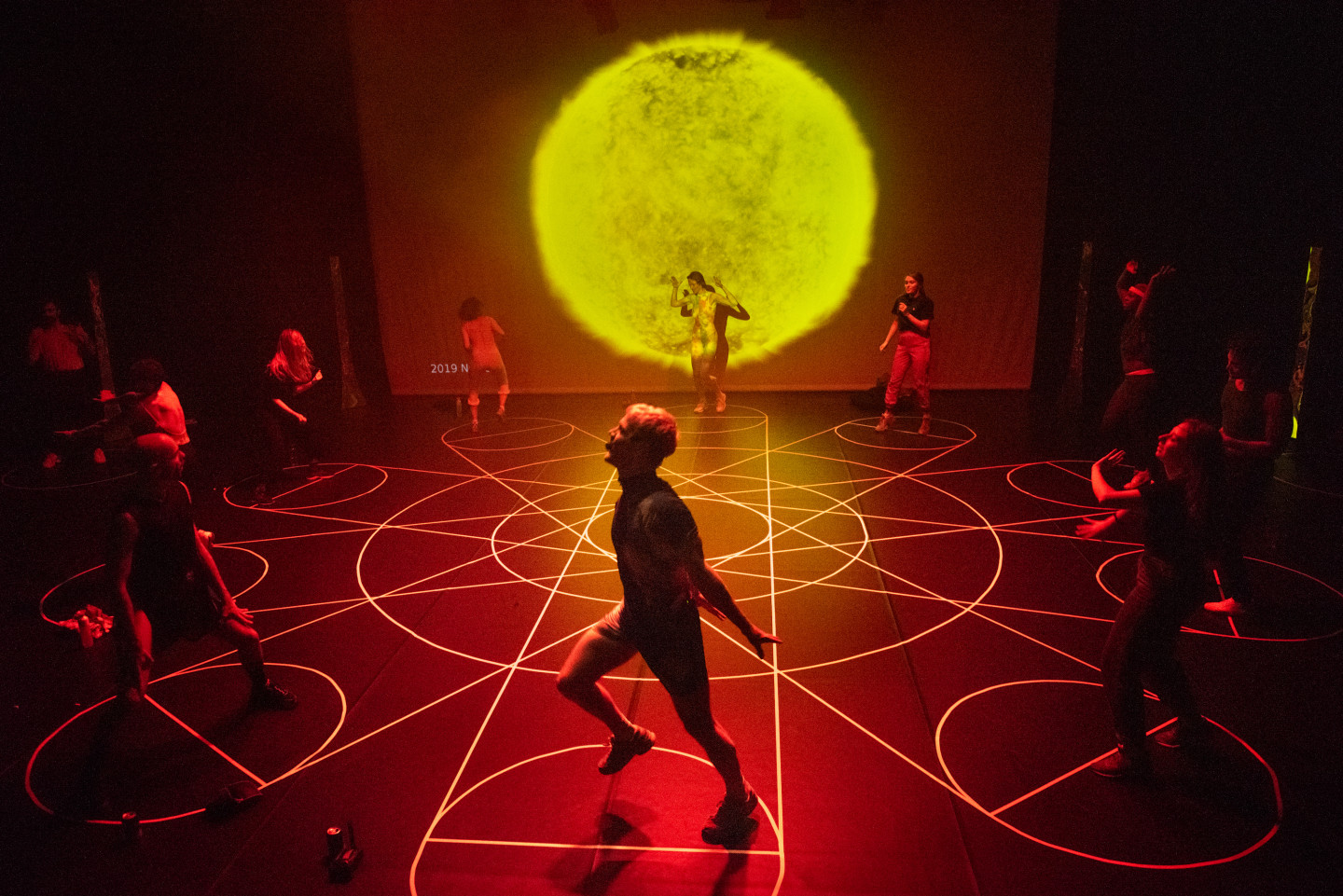Since the nightlife is forced to lock down many of us feel the loss that the ban on clubbing has left behind. We take a closer look at four inspiring alternatives to keep the music, arts and culture going while struggling with challenges of social distancing and other corona measures.
Words by Ramon de Lima
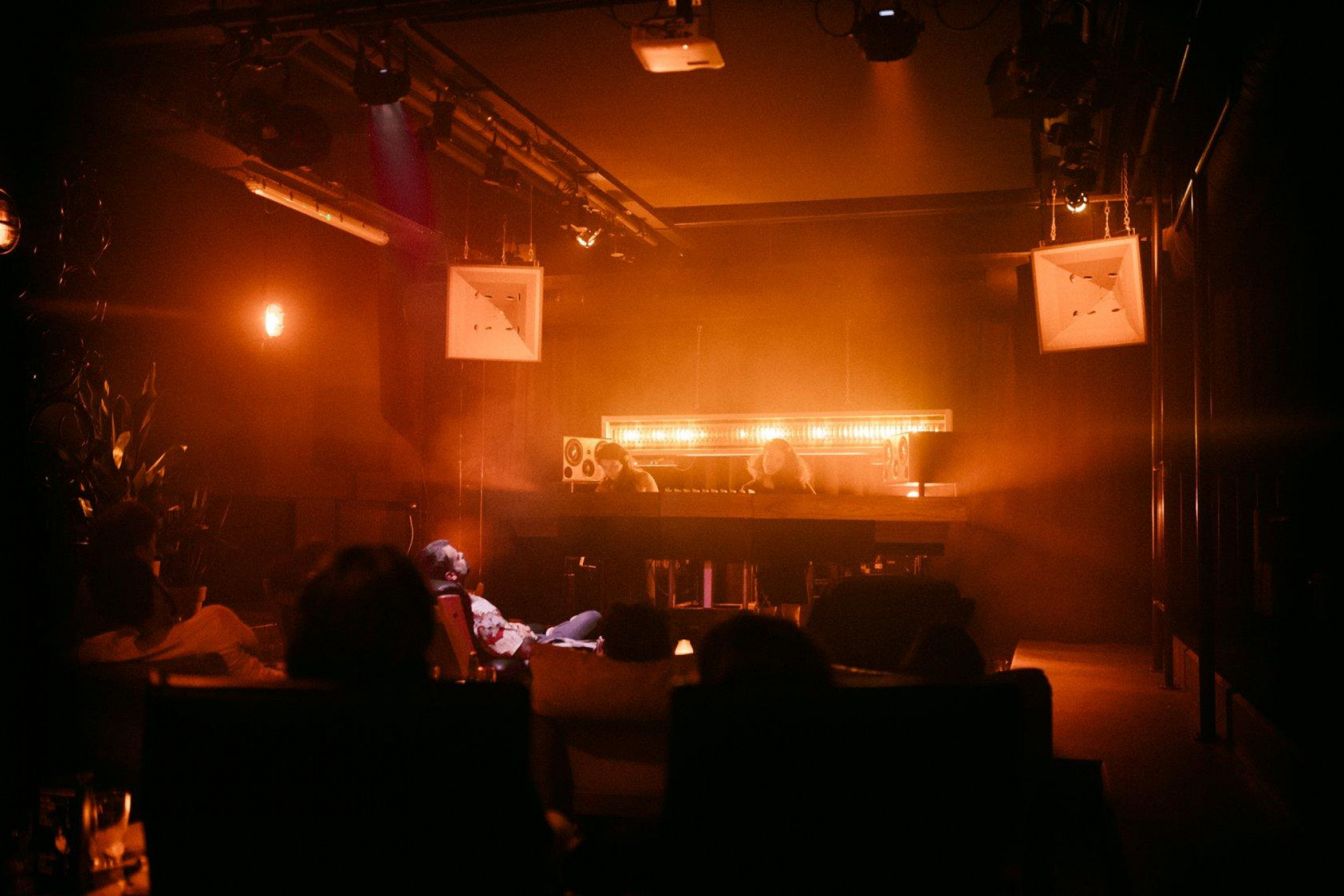
Doka
In June, after being locked down for three months, clubs were allowed to open their doors again, albeit under strict regulations: only seated guests are allowed and the 1,5 meter distance should be maintained at any time. But what remains of a club night when dancing is not allowed? Clubs had to adapt and find a form that works for them and their community.
A successful example is the Amsterdam-based Doka. Since June, the intimate club in the basement of the Volkshotel has organised sit-down sessions on a regular basis. The finest local DJ's play their records on arguably the best sound system in the city — last year the club underwent a serious audio treatment. It reopened in October 2019 as a HiFi soundbar, that focuses on quality of “sound rather than volume”. Taking inspiration from Japan's culture of audiophile venues, who have pioneered a very different, more sedentary style of clubbing, designed to please both dedicated audiophiles and a more casual crowd alike.
With all the innovations, 2020 should have been a promising year for the renewed Doka. But instead it became an indefinite period of uncertainty, when COVID-19 hit The Netherlands. “We’ve been bursting with ambitions and plans, and have been programming months ahead. To postpone everything was a real disappointment.” says Axel van der Lugt, programmer at Doka. “It forces us to act ad-hoc on the situation and be creative. But I'm glad that we can at least be busy and offer something to the community.”
Since the summer, when a number of corona rules were relaxed, Doka has been organizing ‘sit-down sessions’. Almost every weekend guests can sign up for a time slot and enjoy the music from their couches and chairs. Doka regulars like KAMMA, Masalo, Carista, Suze Iljo, Margie and Mary Lake play special listening sets in an intimate setting.
Currently Doka is one of the very few places in Amsterdam where it’s still possible to collectively enjoy music in a club setting. With the latest round of curfews and restrictions in the Netherlands amid a rising second wave of coronavirus cases in Europe, the Dutch Government decided that stricter measures are needed to bring down the number of infections. All establishments that serve food and drinks had to close, except hotels serving hotel guests — allowing Doka to stay open, but only for guests of the Volkshotel. “It’s a challenge to ensure that there's a consistency in what we do, while everything is constantly changing. It causes a lot of headaches,” Axel says. “But it’s important for us to continue because we’re one of three music venues that are allowed to be open.”
"It was refreshing to see that there’s enough talent here to rely on. It's a good sign for our scene." - Axel van der Lugt

In anticipation of the new rules, the Volkshotel introduced a ‘night out’ package, including an overnight stay, dinner and access to a sit-down session in Doka. The workaround turned out to be very popular. "We see people booking their arrangement very far ahead, without even knowing the program. It shows that people longing for a night out, to listen to music together. I am happy that we can do something and offer an alternative in these challenging times.”
The sit-down sessions seem to match the direction Doka has taken: as a soundbar, that's inspired by the listing bar concept, where usually the focus is on - hench the name - listening to music, rather than dancing to it. Axel agrees: “We already started with it last year, but due to corona we have expanded the concept. It is one of the few positive things that this crisis has produced.”
Axel sees it happening that Doka will continue organising sit-down sessions after corona, now that the concept catched on. “But after sitting for almost a year, people are probably done with it,” Axel laughs. “I think Doka also remains a great place to dance.”
Just like every programmer during the pandemic, Axel was completely dependent on artists from the region. “It was refreshing to see that there’s enough talent here to rely on. It's a good sign for our scene.” He believes it’s important for clubs to invest in the local scene in terms of bookings and audiences. It is something that Doka advocates, also before the pandemic, “as a reaction to the globalization of the club industry,” Axel says. “We want to contribute to the night culture of our city, by giving space for local DJs and the artists who reside in this building. It’s great to have big names playing and it’s very special when large DJs play in such a small venue, but that's not our focus.”
But time will tell whether the current momentum can continue to build a stronger foundation for the local scene. “It can go both ways. It’s possible that if the clubs reopen a kind of supermarket war will start, where clubs compete with each other by booking the biggest headliners. But I hope we get a scene that will focus more on the artists and visitors from their own city.”
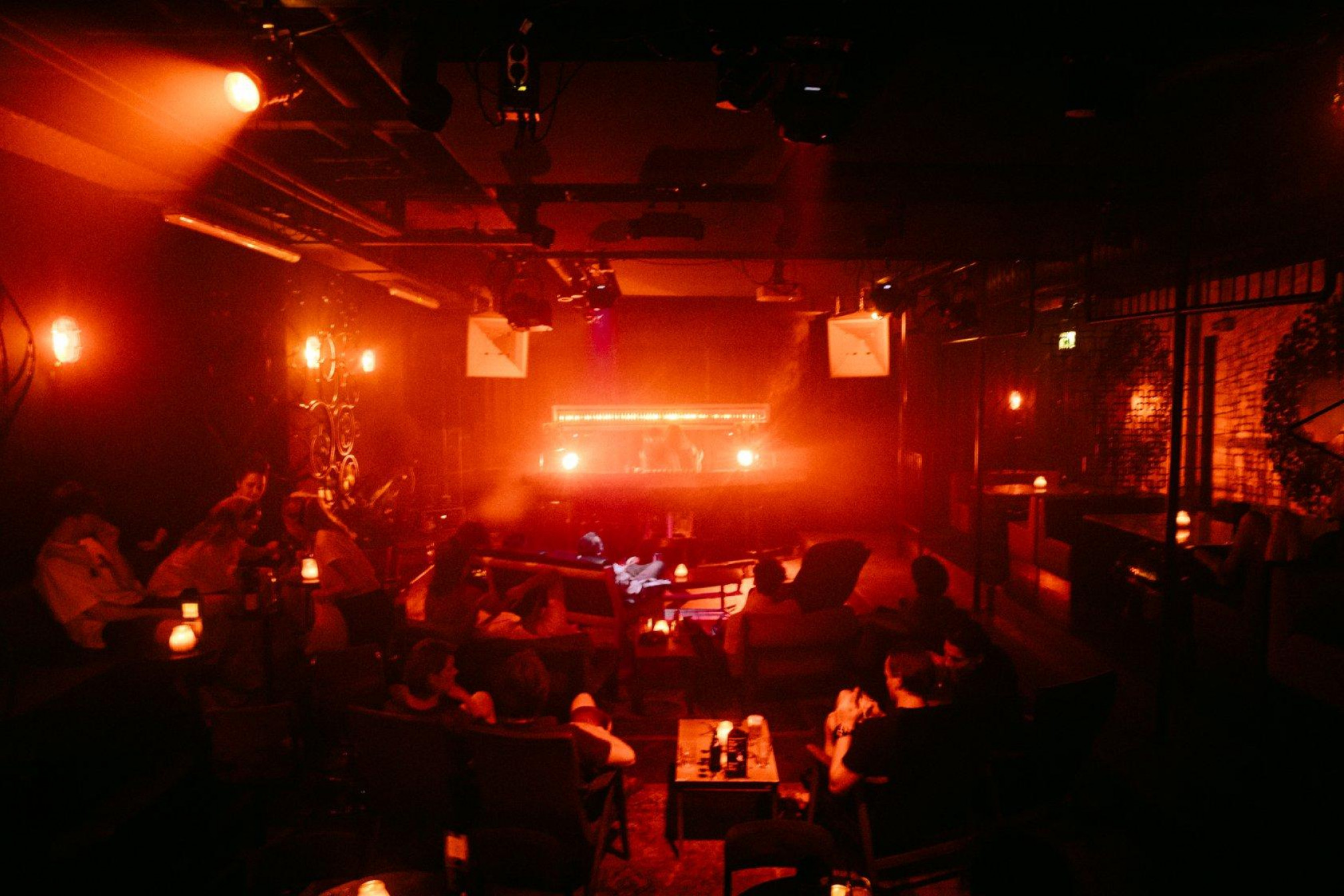
Emotional Audiovisual Retail x Radio Tempo Não Pára
Since the lockdown, the queues in front of nightclubs disappeared and waiting in line for the supermarket became the new normal. But on October 1st these worlds unified during Emotional Audiovisual Retail (EAR). An engaging cultural gathering at Aslan Versmarkt - a small Turkish supermarket in East Amsterdam - bringing the club to the supermarket.
The special one-off livestream was organised by Amsterdam-based music platform Radio Tempo Não Pára (TNP). “The idea was to organise an experience, where music would lead to interaction between people with different ages, cultures and backgrounds,” says Ozzy Ulger, co-founder of Radio Tempo Não Pára. He partnered with Felix Sandvoss, who held the first edition of EAR in Düsseldorf and wrote his bachelor’s thesis about it.
For the location, they had Aslan Versmarkt in mind, a Turkish supermarket in “a very multicultural” neighbourhood in East Amsterdam.“The entire neighbourhood does their shopping there. It was perfect for what we had in mind,” Ozzy says. They meet with the supermarket owner to present their idea. “He was a super open-minded person, but it took a while before he fully understood what our plan was — and that it wasn’t our intention to have a rave in his supermarkt. In the end, the collaboration went very smoothly.”
To also attract people from the neighbourhood and not only people from their own community, TNP spread posters in the supermarket’s surrounding area. The posters were printed in Dutch, English, Turkish and Arabic, to approach the different social groups in their own language. “It really had an effect,” Ozzy says, who saw men in djellabas read the Arabic posters.
It attracted a lot of attention from the local residents, leading to a mixed crowd during the day of the event, “It was so nice to see the people from the night scene, were having conversations with some of the older Aslan regulars. They were talking about music and sharing stories about how they used to party. It worked better than I expected.”
For the event Radio Tempo Não Pára put together a lineup with Palestina Robotica, DJ Marcelle, Mendel and Sekan, who enjoyed playing in such a special setting, Ozzy says. “Sekan (Michiel Sekan, Dutch-Indonesian DJ, founder of Jiwa Jiwa records, red.) was playing Indonesian records for an hour, which is something he would be less likely to play in a club.”
“It was so nice to see people from the night scene were having conversations with some of the older Aslan regulars. They were talking about music and sharing stories about how they used to party. It worked better than I expected.” - Ozzy Ulger
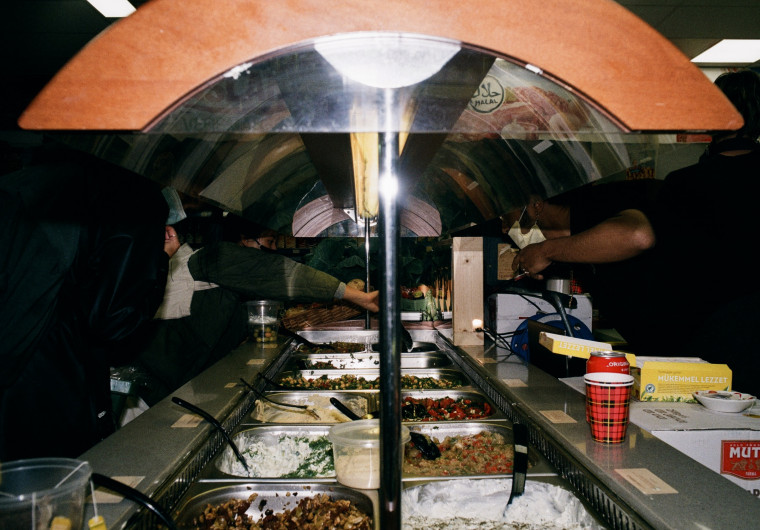
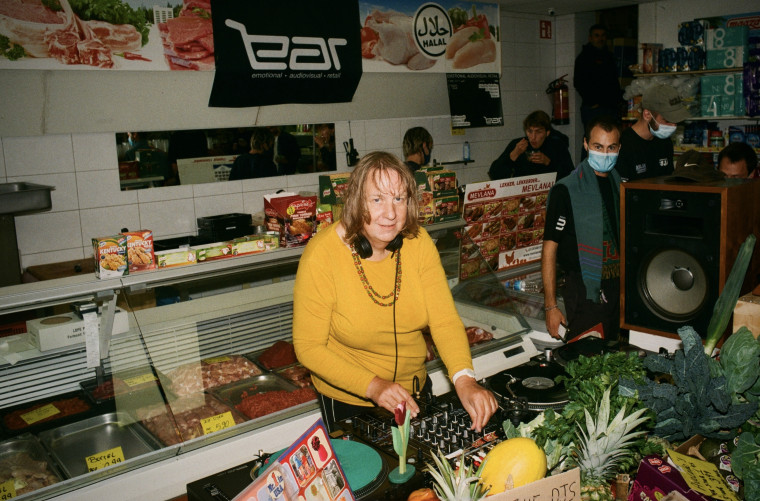
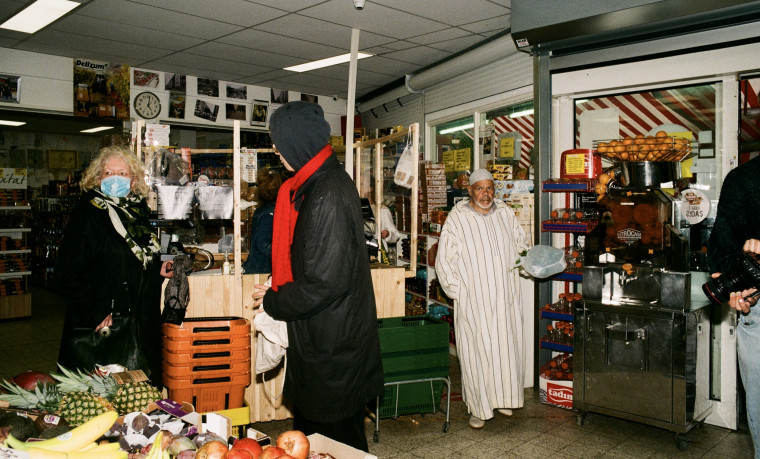
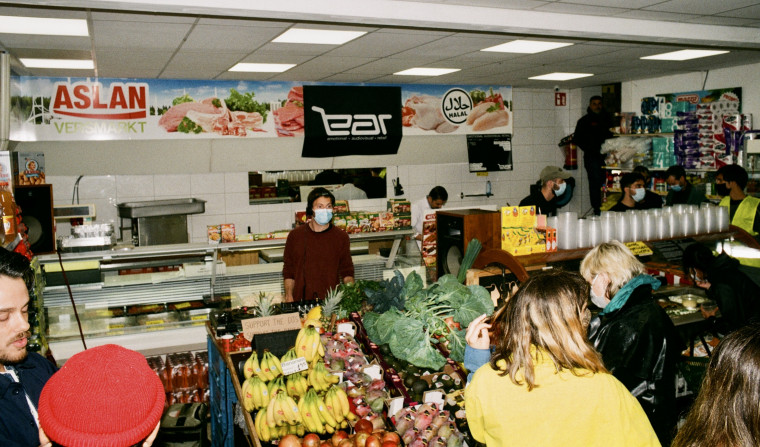
Ozzy says employees and the owner of the shop were mostly laughing and dancing to the music being played, but there were also moments of confusion. He recalls the moment DJ Marcelle entered the supermarket. “Unbothered by the visitors and staff, she started her set with this really weird track, a field recording of children's laughter. You could tell that people in the shop were thinking ‘is this what we’ve to listen to?’. But the second record she played really hit the spot: the staff, shoppers and visitors — everyone went loose! It was truly a magical moment and everyone was just having a good time together.”
“Unbothered by the visitors and staff, Marcelle started her set with this really weird track, a field recording of children's laughter. You could tell that people in the shop were thinking ‘is this what we’ve to listen to?" - Ozzy Ulger
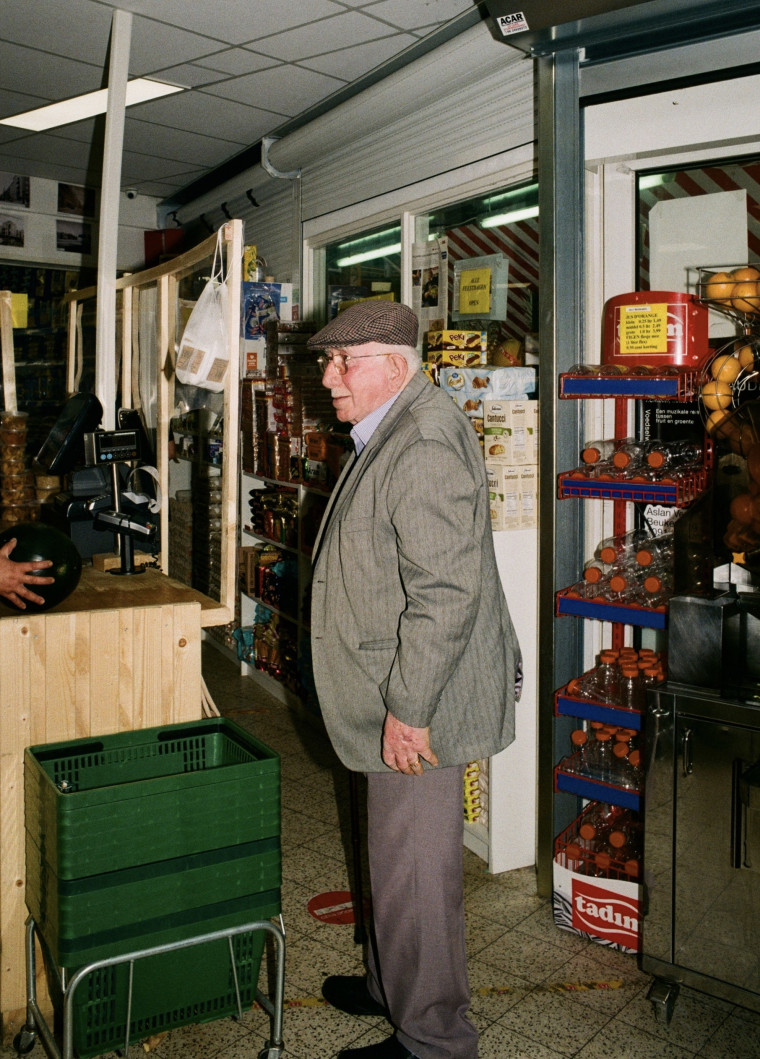
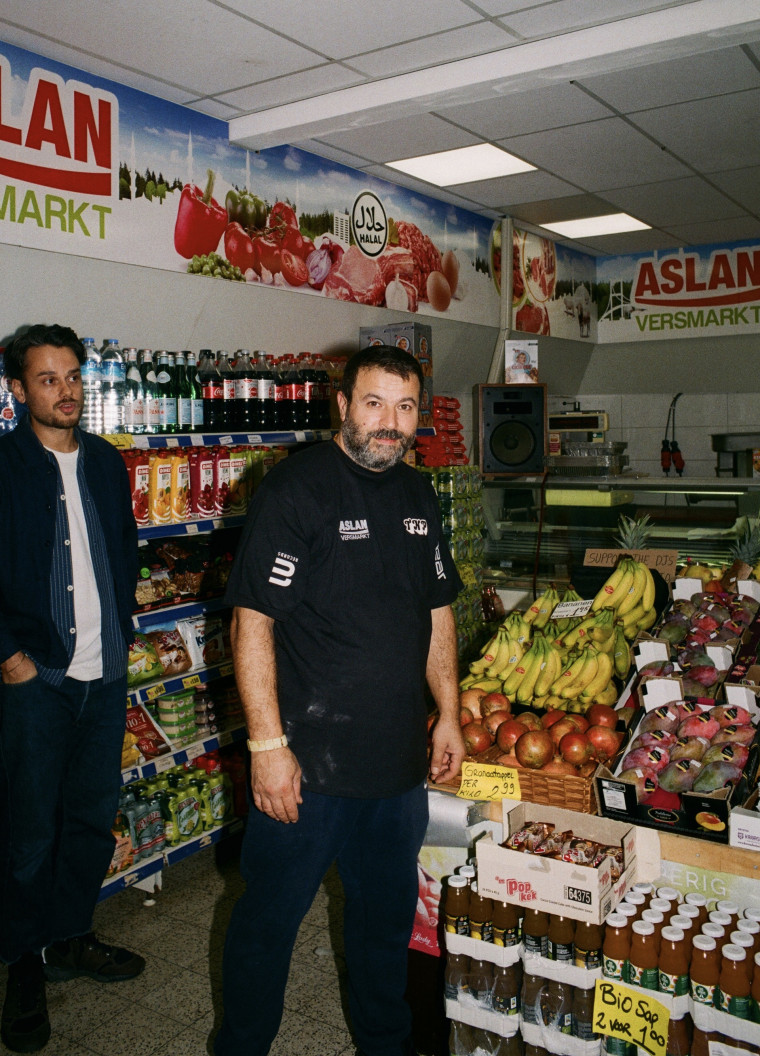
The whole event ran pretty smoothly, considering the circumstances, Ozzy tells. It was a challenge to meet the covid-regulations, while at the same time ensuring everyone could experience EAR. The extensive preparation and dedication from TNP’s team eventually paid off. “We really want to do this again with more people. But only once the whole corona situation has been handled.”
In the meantime the Radio Tempo Não Pára crew is busy with their recently opened radio studio, from where they broadcast every Saturday from 5 - 11 pm local time. Their cozy studio is situated in NDSM Fuse, an exhibition space in Amsterdam North, where, as soon as the rules allow it, everyone is welcome to drop by and say hello to whoever is playing.
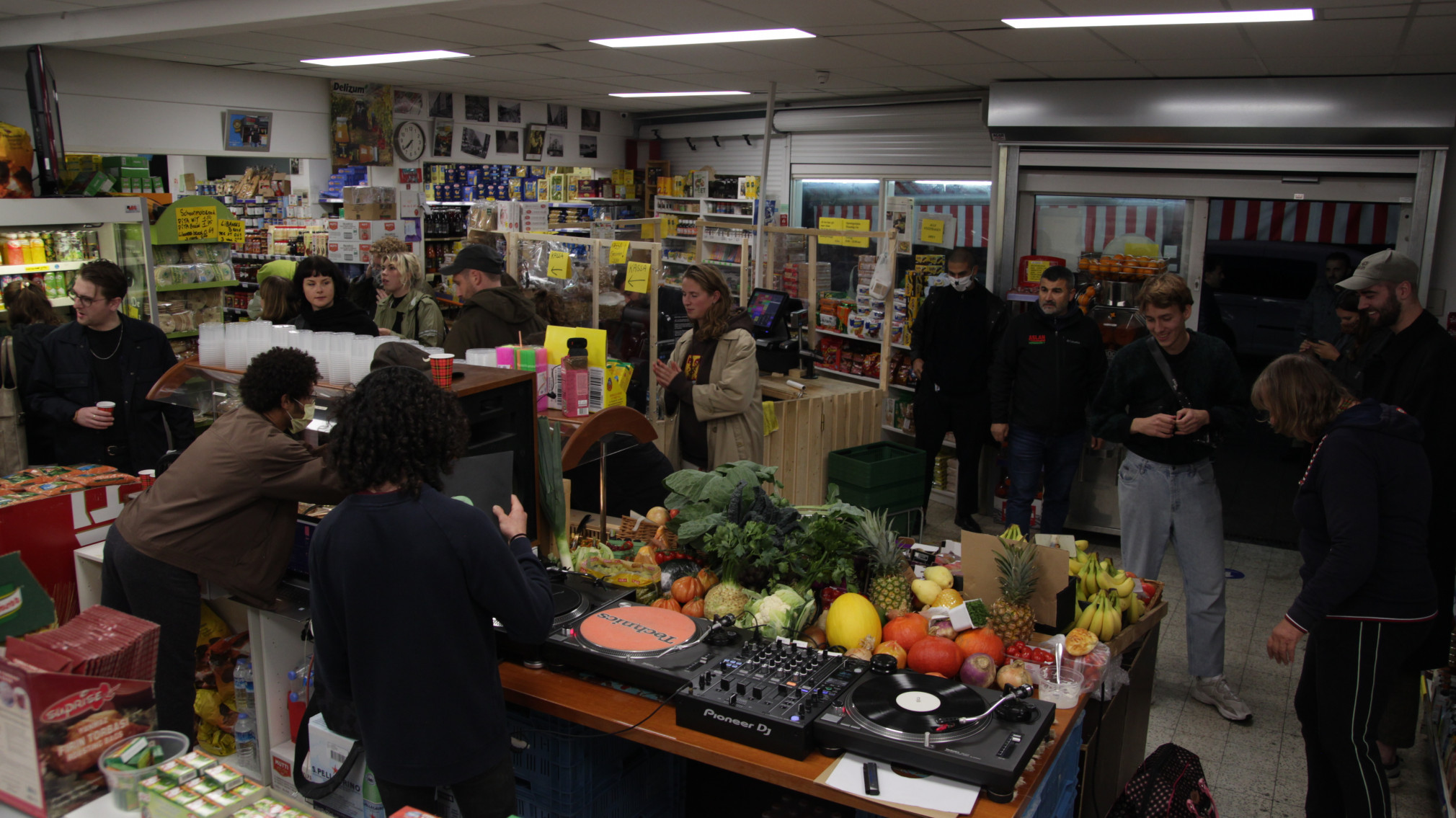
Sexyland Solosseum
Societeit Sexyland, a conceptual club in Amsterdam North, had perhaps the most creative solution for collectively experiencing culture in times of social distancing: the Sexyland Solosseum. A construction with a rotating stage, surrounded by small wooden booths where everyone can enjoy the show on their own.
The idea came from artist Mick Johan, who approached Sexyland to realise the ambitious project. “I thought it was a great idea, but we were also busy with a lot of other things,” says Aukje Dekker, co-founder of Sexyland. It was a lucky coincidence that at the same time theatre collective de Warme Winkel was already building an identical construction. “I was talking to Vincent (Rietveld, co-founder De Warme Winkel, red.) when he mentioned he was working on what he called The Peepshow Palace,” Aukje says. “I suggested joining forces, because It made no sense to both make the same construction, especially because we know each other so well.”
In two weeks De Warme Winkel built a corona proof theatre inside theatre De Brakke Grond. A round structure made of steel and Italian poplar wood, with a diameter of twenty meters and two floors with a total of 96 cabins. “Besides being corona proof, it’s also a great experience to watch the show from a pleasant wood-smelling private booth. Nobody is watching you if you want to sit with your hand in your pants or want to sing along. You have a collective experience, but it’s also very private.”
“Besides being corona-proof, it’s also a great experience to watch the show from a pleasant wood-smelling private booth. Nobody is watching you if you want to sit with your hand in your pants or want to sing along. You have a collective experience, but it’s also very private.” - Aukje Dekker
As part of The Peepshow Palace Festival in June, Sexyland presented an eclectic programme with music, theatre and performances. In 90 minutes, 25 acts follow each other up at a rapid pace, with no line-up announced. “It was cultural browsing without an algorithm,” Aukje says. “When you go online, the internet basically anticipates your desires and you end up seeing what you want to see. During the pandemic, most of the culture is experienced online, presented by that algorithm. Why I love channel zapping on television so much, is that you sometimes end up seeing something that amazes you; that you didn’t expect to see. The Solosseum offers the same experience. There’s always something in between that doesn’t suit you, uncomfortable even. But that’s fun too."
The Sexyland Solosseum was open for a week. “Some visitors found it too confusing,” Aukje laughs. “But the majority really liked it. And for the artists, it was a great experience. I felt like an old-fashioned performance because you have quite a lot of people watching.”
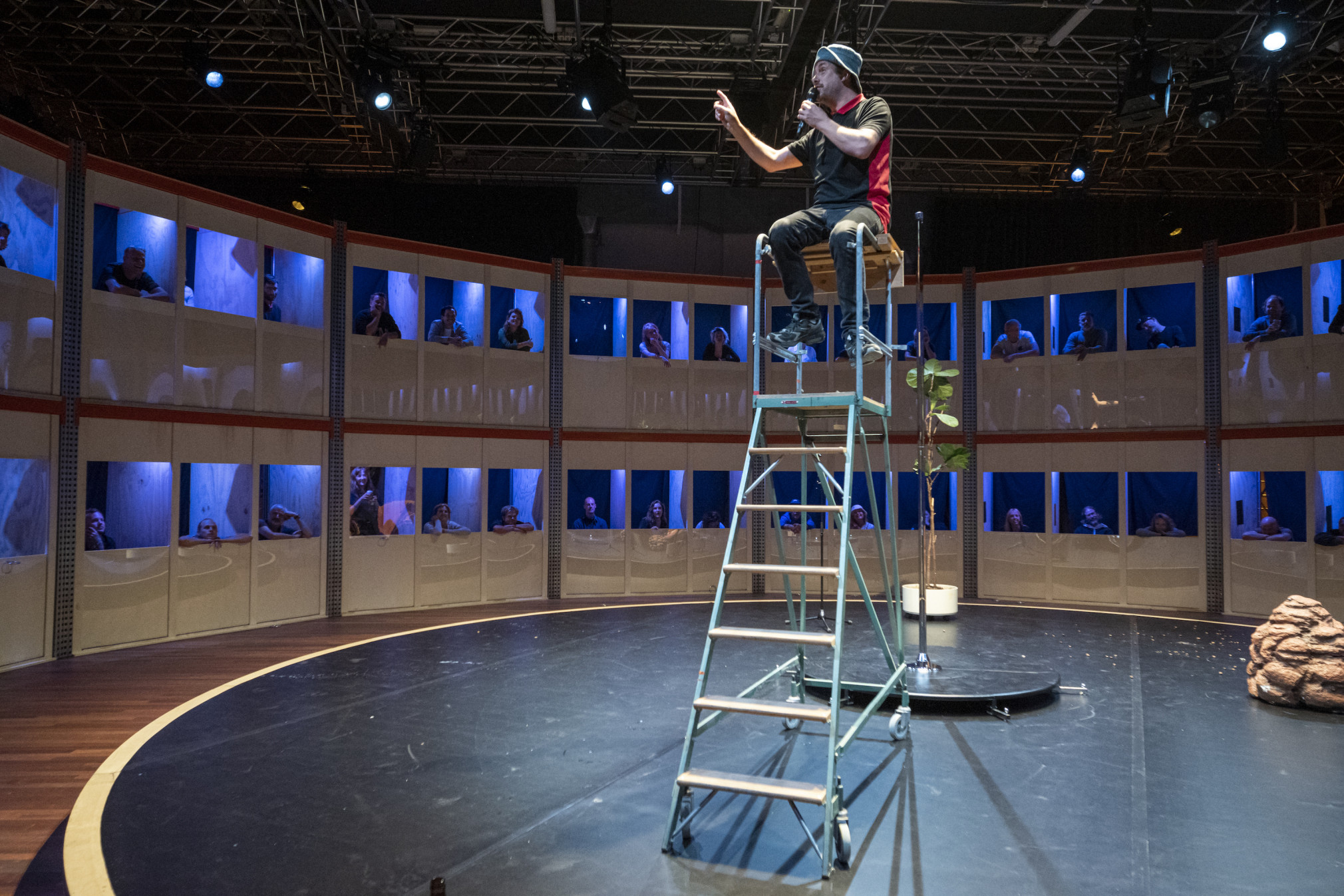
The Sexyland Solosseum was one of the few things Sexyland did during the pandemic. In their wooden shed on the NDSM-wharf it remained mostly quiet — even though it was possible to organize small-scale events between June and October, as long as the 1.5 meters distance is maintained and people remain seated. It’s in stark contrast with how we know the club: with their concept of a different ‘owner’ every day that decides what kind of club they want it to be, there was always something new to experience. But with current limitations Sexyland had more cancellations than registrations.
“We also didn’t feel like organizing anything ourselves,” Aukje says. A thoughtful consideration, she explains. “We asked ourselves: what’s actually the soul of Sexyland and can we replace the soul with something that is equally as good? Under the current circumstances and with all the restrictions, I have to say no. We had a few beautiful exhibitions, and we tried some other things, but it didn’t reflect what Sexyland is supposed to be. I'd rather organize nothing, than something that just vaguely resembles what we used to do. It also gave us peace of mind to make that decision. In the meanwhile, we’re building on the future.”
Although it’s still possible to be the owner of Sexyland for a day, Aukje. “We are here and we are open to anyone who has a brilliant idea — just email us, there’s plenty of room.”
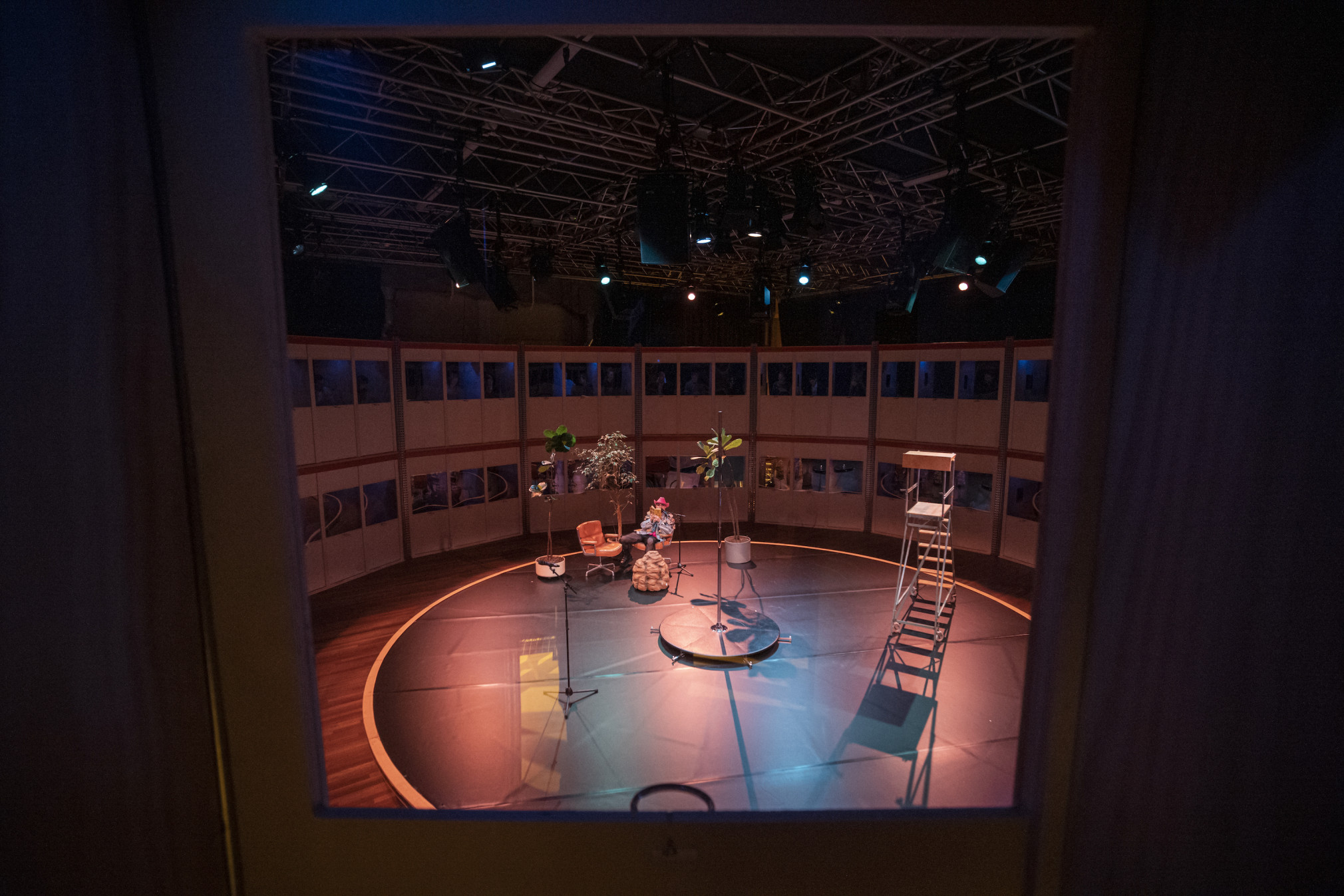
Pilot PC
When clubs closed, Connor Schumacher moved the rave space to the only space possible; the theatre; where the American dance artist (now based in Rotterdam) organizes rave sessions at a safe distance.
Due to corona, people have to sit on a chair during club nights. As a result many people have lost an important outlet Connor explains. “The dance floor is the space for human beings to process their experiences, their traumas, and to be able to express themselves,” he says. “I accumulated more sadness, anger and frustration since the pandemic, than I had in the past. Normally I would go rave and put everything on fire with hundreds of other people, and see their energy move with them. The rave is the only physical and mental space that gives me relief. During the first lockdown I realized how much I missed that.”
It led to the development of his project Pilot PC, where he together with 29 others practices a one-hour social choreography. “In a way, I built the project for myself to get through that time and to be able to open up that space for others,” Connor says. “Knowing that people really rely on space to rave. To feel safe, to shake up their identity, to shake up the experiences that are stored in their body.”
During the performance Connor guides the ravers - who are all standing in their own 1,5 meter circles - through three phases, starting with a TED-Talk. “I’m trying to be very transparent about the context, about why I made it and what we're trying to do here together.” In the TED-talk Connor also explains that raving is not only about dancing. Under normal circumstances the club acts as a social rehearsal space, he says. “Ravers learn to recognize the differences and similarities between people, to show empathy, to create self-awareness and to adapt where necessary. The music functions as a connecting factor.”
“In a way, I built the project for myself to get through that time and to be able to open up that space for others,” Connor says. “Knowing that people really rely on space to rave. To feel safe, to shake up their identity, to shake up the experiences that are stored in their body.” - Connor Schumacher
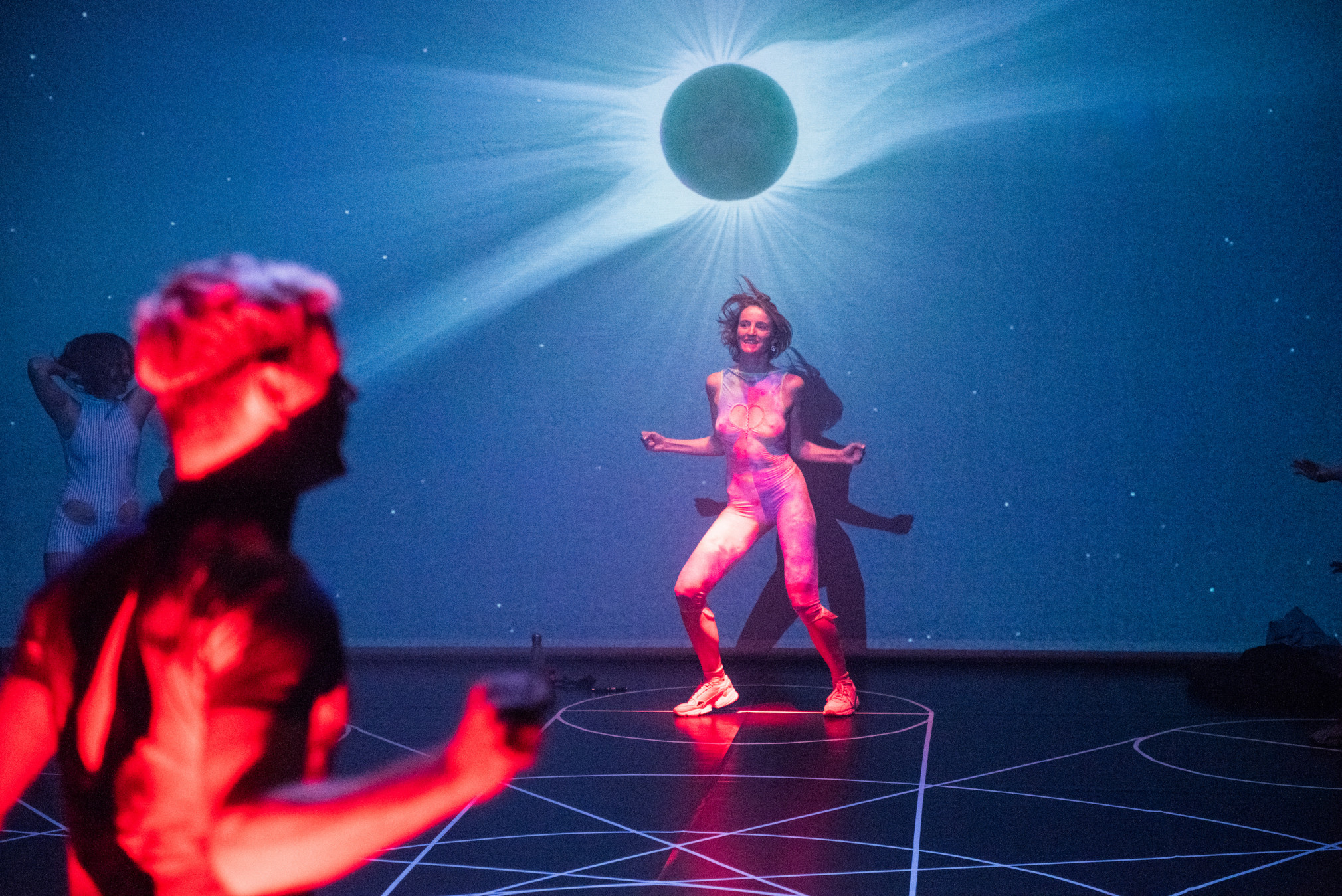
In the second phase Connor gives a rave aerobics exercise. “I took a few movements from the rave. I’ve tried to distil what they mean to me, what they can mean to others and what they can mean together when we use them in space.” This leads to the last phase, where the simulated rave will be practiced. It’s the moment where everyone surrenders to the music, while the room fills with smoke and flashing lights. Connor explains that this is the phase where there may be awkwardness, darkness, failure — they arrive at deeper feelings, “that we will try to shake and move and find new directions with.”
Connor tours with Pilot PC through theatres around The Netherlands, and it does not only attract seasoned ravers. “It was amazing to see all the different people walking up the stage. A woman around the age of 55 walked in with her track pants on, like, ready to fucking dance,” Connor says. “During a workshop I gave later that month, someone told me that she was her mom.”
After the performance people often tell Conor, the session made them realize how much they missed to rave. But he emphasizes that Pilot PC it's not a substitute for raving. “I made this performance as a transition to reopening the nightlife. It's something to just help us get through the time as we slowly open back up. I might be able to play a part in opening back up in a new direction, like with a little bit more awareness or a little bit more intention of how we open back up — including nightlife. Because we all know that this entire nine months has been very revealing. And now as a society will open up, what are we going to do with all of this? New knowledge of the fragility of the body, the vulnerability of our society? How fragile it all is, how are we going to use that knowledge and try to do things more consciously.”
Photos by Tom van Huisstede, Joao M B Costa, Anna van Kooi, and Anila Kramer.
